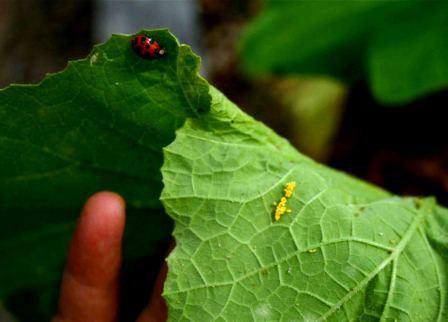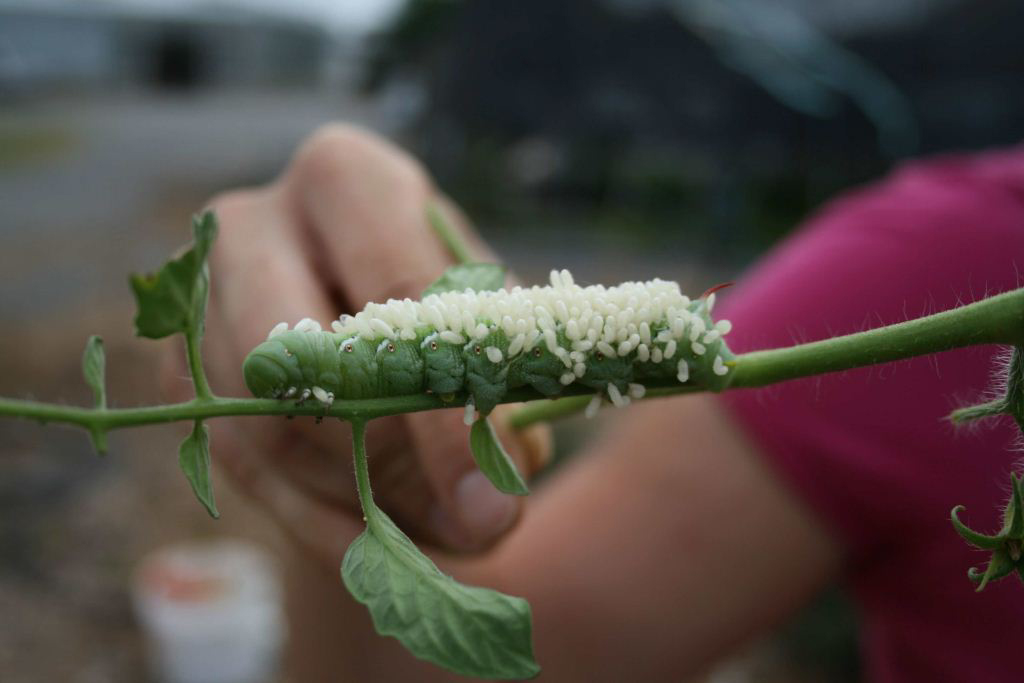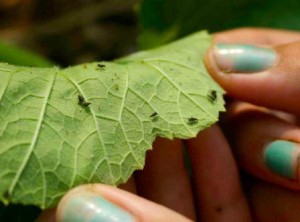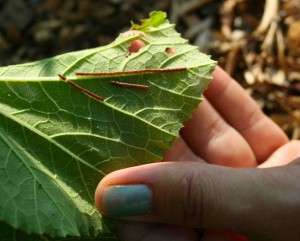Friend or Foe?
by Laura Schumm, Community Kitchen Garden Research Intern, Lewis Ginter Botanical Garden; photos by Brian Vick, Community Kitchen Garden Coordinator

Ladybugs (beneficial insects) lay small yellow eggs. Mexican bean beetles (pests), a close relative to ladybugs, do too. The eggs look very similar. Once the larvae hatch it is much easier to tell the difference between the two.
There has been a large amount of insect activity here in the Community Kitchen Garden this year at Lewis Ginter, partly due to the extreme heat this summer and the mild winter temperatures. When combating pests in your garden, it is important to observe and identify first. The good news is that the presence of insect pests in your garden will usually bring beneficial insects too, these are the good guys. It’s important to learn the difference between the pests and the beneficials so you can treat for the bad bugs and leave the good ones alone.
There are so many reliable resources available today, so identifying insect pests is the easy part. The Lora Robins Library at Lewis Ginter Botanical Garden has many books dedicated to the topic of garden pests. The Virginia Cooperative Extension Agency is also a wonderful resource, and don’t forget about your fellow gardeners and local farmers. Be careful when using the Internet for bug identification; If you do, stick with one of many universities have entomology departments with great websites that are very reliable.
Here in the CKG, the vine borers, cucumber beetles, and squash bugs have been around for months now, but we recently had many other insects invade the garden. Over the last few weeks we have identified many other pests like aphids, leaf footed bugs, Mexican bean beetles, tomato hornworms, harlequin bugs, cross striped cabbage worms, cabbage loopers, and imported cabbage worms. The presence of these pests has attracted beneficials like ladybugs, lace wings, soldier beetles, and predatory wasps. The beneficial insects prey on or parasitize the pest insects. For example ladybugs love to feast on aphids, and small parasitic wasps lay their eggs on the backs of tomato hornworms. The wasp lays its eggs on the hornworm, as the eggs hatch the wasp larvae eat the hornworm, killing it in the process.

This photo shows parasitic wasp cocoons on a hornworm, if you see this in your garden leave it be so that the wasps hatch and the process can begin again.
Once you have positively identified the insects in your garden, you can choose the most effective and least hazardous treatment. In the CKG we use Bacillus thuringiensis(Bt), which is a naturally occurring bacteria that is used as an organic pesticide and it does not kill beneficial insects. We also use aromatic herbs such as basil and dill as companion plants to try to deter insect pests in the first place. Avoid broad spectrum pesticides that kill all insects, including beneficials. The ladybugs, bees, and even the wasps are our friends, and our gardens need them to flourish.

